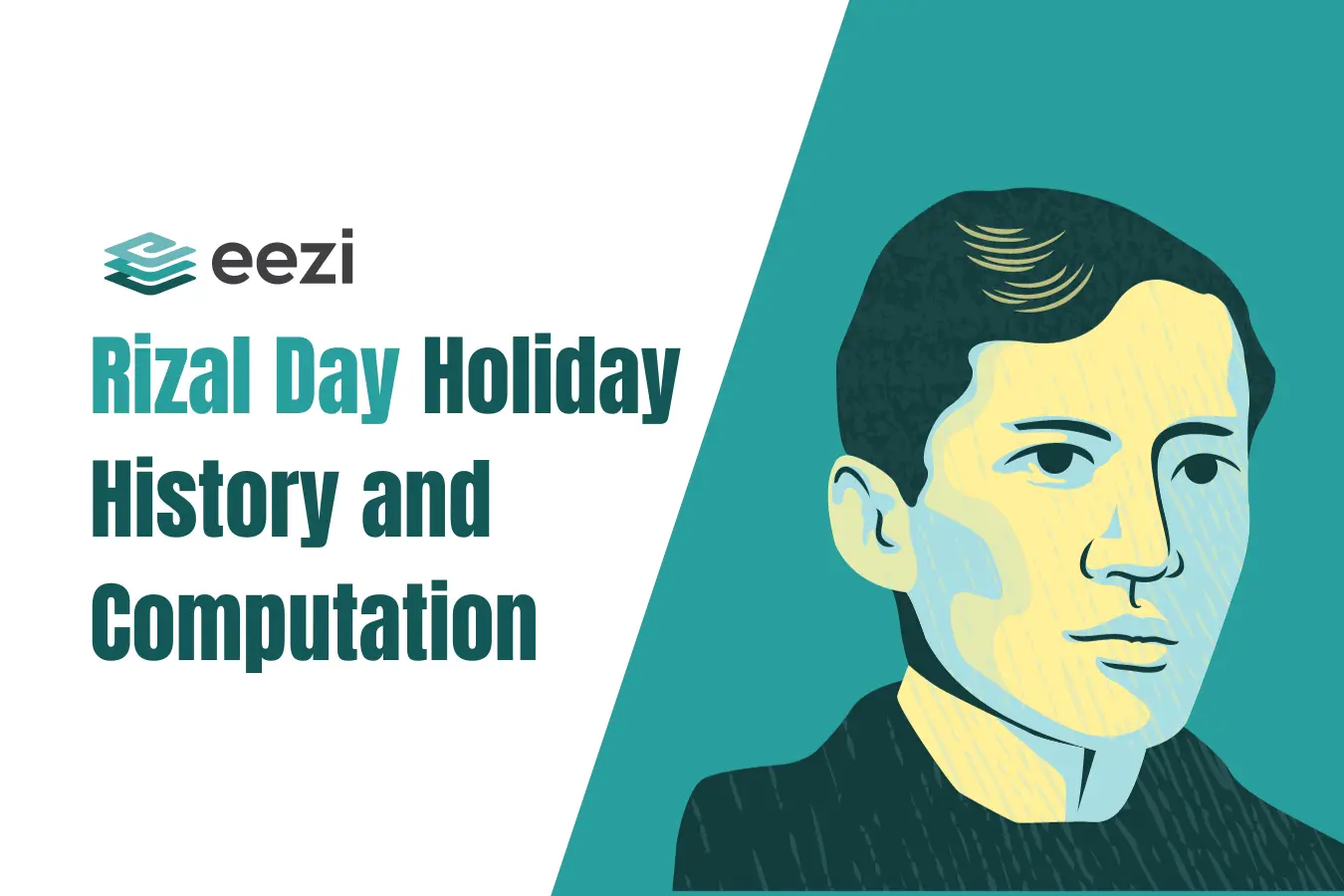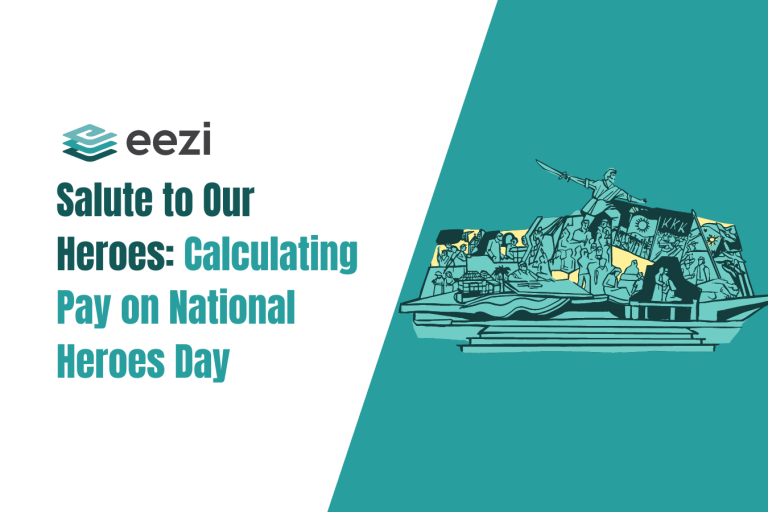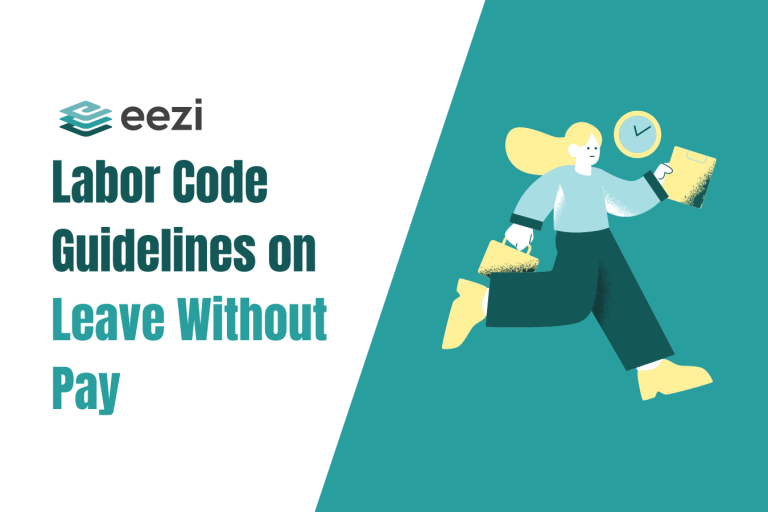What is the history behind Rizal Day, and how do you compensate employees on this holiday?
Jump to Sections

December 30, also known as Rizal Day, is a regular holiday in the Philippines that commemorates the works and life of the national hero, Dr. Jose Rizal. It marks the anniversary of Rizal’s execution at Bagumbayan, Manila, in 1896.
The first Rizal Day was observed in 1898 as a day of grieving for Rizal in Malolos and all those who died during the Spanish colonial administration under Emilio Aguinaldo, the first president of the Philippines.
As Filipinos observe this significant day, it’s crucial for both employers and employees to understand the rules and regulations surrounding holiday pay computation.
The Philippine Labor Code and its associated regulations mainly set the requirements for computing holiday pay on Rizal Day. Employees who work on this regular holiday are legally entitled to additional pay.
In this article, we’ll learn more about Rizal Day, pay rules, and computation. But before that, we’ll first briefly overview the different Philippine holidays.
The history of Rizal Day

Jose Protacio Rizal Mercado y Alonso Realonda, also known as Dr. Jose Rizal, is one of the prominent people who initiated the revolution against the Spanish colonists. He was born in Calamba on June 19, 1861. Rizal was a doctor and a writer.
In his 1887 book Noli Me Tangere, he condemned the corrupt Spanish administration over the Philippines. Moreover, several historians concur that the revolution references concepts in that book and El Filibusterismo (Reign of Greed).
At Bagumbayan Field, Rizal faced his death by firing squad on December 30, 1896. Despite never having engaged in battle, he was previously detained and put on trial for treason.
First Rizal Day
The first Rizal Day was a national day of grieving for Rizal and all the victims of the Spanish colonial regime in 1898 by Emilio Aguinaldo, the country’s first president.
The first town to abide by the order was Daet, Camarines Norte, which raised a monument designed by Lt. Col. Antonio Sanz and financed by the people of Camarines Norte and the surrounding Bicol Region.
Rizal as a national hero
In 1910, the Americans gained authority in the Philippines after winning the Spanish-American War against the Spanish. Declaring Rizal a national hero of the Philippines, American Governor-General William Howard Taft showed that they were more pro-Filipino than the Spaniards.
Act No. 345 was issued by the Philippine Commission on February 1, 1902, a year later, officially designating December 30 as Rizal Day.
To guarantee the event’s solemnity, President Elpidio Quirino approved Republic Act No. 229 on June 9, 1948. Every December 30, the law forbids horse racing, cockfighting, and jai-alai. It also mandates that flags be raised at half-staff nationwide.
On December 30, 1996, the centennial of Rizal’s death was commemorated with a reenactment and a flag-raising ceremony. The event involved retracing Rizal’s final steps from his cell at Fort Santiago to the execution site.
eezi HR Guide
Stay compliant with the required employee benefits in the Philippines.
Is December 30 a special holiday in the Philippines?
Rizal Day falls on December 30 every year. As per the proclamation, this is a regular holiday in the Philippines. Moreover, regular holidays, except for El id Fatir, Maundy Thursday, and Black Friday, typically have a set date.
Regular holidays differ from special non-working days, which provide premium pay instead of holiday pay if an employee works on the day.
The primary purpose of making Rizal Day a regular holiday is to provide Filipinos an annual opportunity to honor their people’s bravery, foster a sense of national identity, and strengthen their patriotism.
What is the special holiday pay computation for the Rizal Day?
The Department of Labor and Employment (DOLE) has advised companies to ensure that workers present on December 30 to commemorate the national hero Jose Rizal receive fair compensation.
DOLE Advisory No. 24, Series of 2023, outlines how to compute pay correctly for officially declared regular holidays.
The pay guidelines for December 30 are as follows:
- The employees will receive double or 200% of the salary for the first eight hours of work.
(basic salary + COLA) x 200%)
- Employees not working on a particular day will receive 100% of their salary.
(Basic salary + COLA) x 100%)
- The employee will receive an additional 30% of their hourly Rate on the day they work overtime.
(hourly rate of the basic salary x 200% x 130% x number of hours completed)
- An employee will receive an additional 30% of their basic salary of 200% if they work on a regular holiday that also happens to be a rest day.
(basic salary + COLA) x 200%] + [30% (basic salary x 200%)
- An employee will receive an additional 30% of their hourly Rate on a regular holiday that also happens to be a rest day if they work overtime.
(hourly rate of the basic salary x 200% x 130% x 130% x total work hours completed)
Sample computation for the December 30 Holiday (Rizal Day)
For example:
- Basic Salary: 1,000
- COLA (Cost of Living Allowance): 100
- Hourly Rate: (Assume eight working hours per day) Basic Salary / 8
Regular working hours (First 8 hours):
Daily Pay = (Basic Salary+COLA) × 200%
Daily Pay = (1,000+100) × 2 = 2,200
Not working on the day:
Daily Pay = (Basic Salary+COLA) × 100%
Daily Pay = (1,000+100) × 1 = 1,100
Overtime pay:
Assuming the employee works an additional 2 hours.
Overtime Pay = (Hourly Rate × 200% × 130%) × Number of Hours
Overtime Pay = (1,1008 × 2 × 1.3) = 341.25
Working on a regular holiday (Rest day):
Holiday Pay = (Basic Salary + COLA) × 200% + [30% × (Basic Salary×200%)]
Holiday Pay = (1,000+100) × 2 + [0.30 × (1,000×2)] = 2,700
Overtime on regular holidays (Rest day):
Assuming the employee works an additional 2 hours.
Overtime Pay = (Hourly Rate × 200% × 130% × 130%) × Number of Hours
Overtime Pay = (1,1008 × 2 × 1.3 × 1.3) = 442.43
Related: Holiday Pay Computation in the Philippines
Take away
As we commemorate Rizal Day, it is crucial for both employers and employees to be aware of the regulations surrounding holiday pay computation. Hence, understanding these rules ensures that employees receive their just compensation for their work during this special non-working holiday.
Remember, accurate pay computations contribute to a positive work atmosphere, reinforcing the value and respect that employees deserve for their dedication and hard work, even on special holidays like Rizal Day.
Learn how eezi offers a seamless holiday pay computation.
With eezi‘s HR and payroll system, you can calculate Rizal Day without worrying. Our software handles all of the calculations, from clock-in to pay slip generation. Learn how it works.



